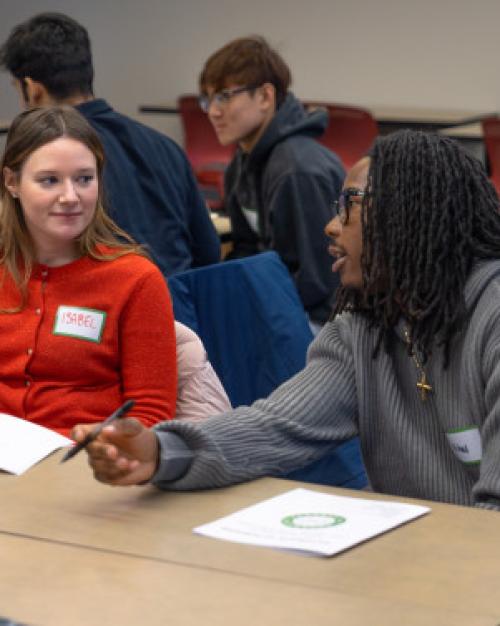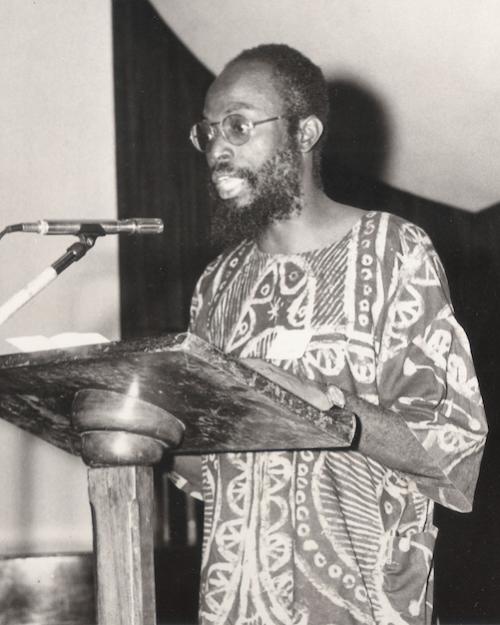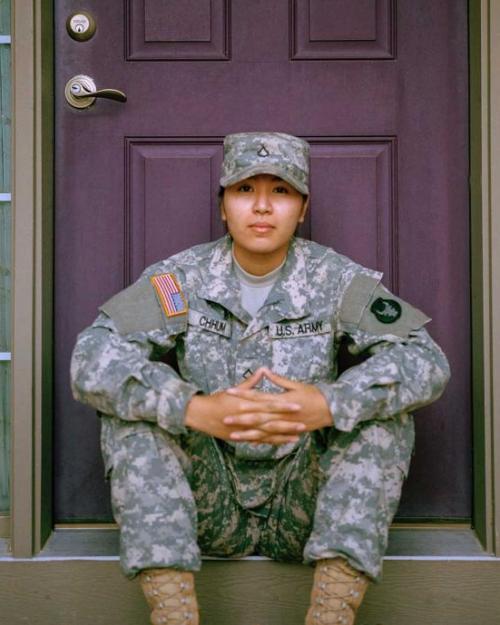The new Gender and the Security Sector (GSS) Lab is using an interdisciplinary, social scientific approach to study the role of gender in security forces – including police, military and peacekeeping forces.
Launched Jan. 4 by Sabrina Karim, the Hardis Family Assistant Professor of government in the College of Arts and Sciences, the lab applies a comprehensive framework, developed by Karim with a previous grant, to assess barriers to women’s meaningful participation in United Nations peacekeeping operations. The framework can be adapted and applied to study other barriers to women’s participation in other contexts, Karim said.
“Women who enter into occupations that are traditionally masculine spaces such as in the security sector or politics face many barriers that prevent them from succeeding in the profession,” she said. “The goal with our methodology is to create a flexible tool that can be applied to measure those barriers in the context of U.N. peacekeeping operations but also in the security forces themselves.”
The lab is supported by a $400,000 grant from the Geneva Centre for Democratic Control of Armed Forces, a nonprofit international foundation in Geneva, Switzerland, dedicated to improving the security of states and people within a framework of democratic governance, the rule of law and respect for human rights.
With the grant, Karim has been able to hire two predoctoral fellows and three graduate assistants who are responsible for implementing the methodology in different countries. Additionally, more than 12 undergraduate research assistants are working in the lab, which integrates with Karim’s fall 2021 Politics of Policing course.
“It has been a great way to involve women of color into undergraduate social science research, as over 50 people applied for these positions and nearly all were women or women of color,” Karim said. “The topic area generated a lot of interest in the research process.”
Starting in 2018, Karim and research partners from eight other countries began developing the MOWIP (Measuring Opportunities for Women in Peace Operations) Methodology, a rigorous, innovative tool that measures the degree to which women can meaningfully participate in peace operations, the military or police work in different countries. That tool launched in October.
“The lab is set up to help countries implement the MOWIP Assessment,” Karim said. “We will use the data from all of the countries participating to advance research on women, gender and the security sector.”
With the collected data, GSS researchers are asking:
- How does gender shape the attitudes and behavior of security force personnel?
- Under what conditions can women meaningfully participate in security forces?
- How does security force personnel’s participation in peacekeeping affect their perceptions and behavior upon return?
- Does gender prime security force personnel to de-escalate from using violence?
- Do (gendered) belief systems cluster within certain subgroups within the security forces?
So far, the lab has completed surveys and interviews of the Ghanaian Armed Forces; Zambia Police Service; Uruguay Police; Uruguayan Armed Forces; and the Senegalese Gendarmerie and Police. Karim said the lab hopes to conduct surveys this year in Norway, Liberia and Jordan.




